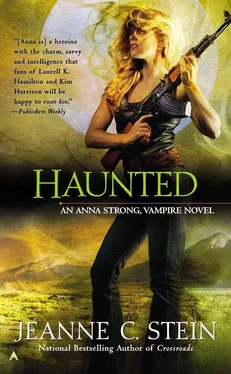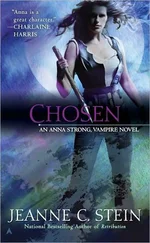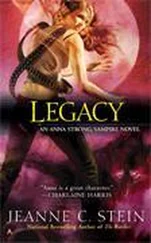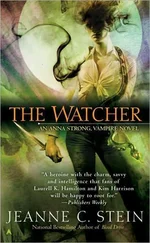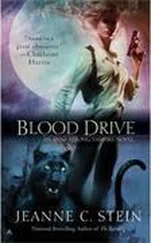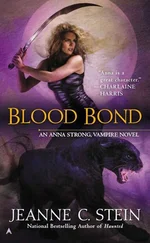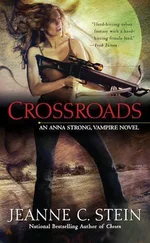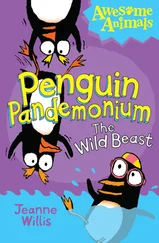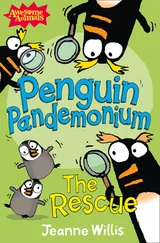Finally, he pats the guy on the shoulder and looks at Culebra. “He should be fine. The cut looked worse than it is because of the blood. He doesn’t need stitches. He has a knot on his head but there are no obvious signs of concussion. His eyes react correctly to light and are focusing. How long was he wandering around?”
He looks to Culebra, who looks to me for the answer to that question, but I can only shrug. “I don’t know. I found him about half an hour ago.”
Culebra addresses the question to the wounded man. He replies in Spanish, which Culebra translates for us. “Maybe four hours. He’s not sure. His car broke down and his cell phone went dead. He thought he was headed toward Tijuana. When he fell, he hit his head and had trouble getting up. That’s when Anna found him.”
“Lucky thing she did. And lucky this is winter and not summer. Dehydration isn’t indicated, but it won’t hurt to get some water into him. Keep him awake. Can’t rule out concussion yet. If he starts vomiting or acting strange, let me know right away.”
Culebra thanks him and the doctor disappears back into the cave. I realize I have yet to learn his name. He’s like a genie, here when you summon him, retreating back into his bottle, or most likely needle or pipe, when you don’t.
Culebra is helping the man, Ramon, off the gurney. He seems suddenly to remember that I’m in the room, too. “Thank you for bringing my friend here.” He says it like he’s dismissing me. His eyes are distant.
I’m not one who is easily dismissed, especially when it comes to a stranger who called Culebra a name I’d never heard before. “Why did he call you Tomás?”
“Anna, please. You should go.”
Probably should. But I’m not. Whoever this Ramon is, he doesn’t know the name Culebra. Why? And I found him wandering in the desert a few miles from Beso de la Muerte. Not Tijuana.
“You recognized him. I saw it. Who is he?”
Ramon is on his feet, looking better now that most of the blood has been wiped from his face. He squares off, standing on his own, stepping away from Culebra’s supporting arm. Looking my way, then back to Culebra, he says something so quietly, I only catch a word or two.
But it’s enough. I recognize one of the words. Hermano. And another. Peligro.
“ Hermano? Culebra, he’s your brother? Is he in danger?”
Each time I use the name Culebra, the injured man seems puzzled. It’s obvious to whom I’m speaking, but it’s just as obvious that this man has no idea why I keep referring to him as a snake—the translation.
I ask the question again. “Is this your brother?”
Culebra takes my arm and steers me none too gently toward the door that leads to the path outside. Tension radiates from his body, vibrates through his grip. Yes. I will explain later. Right now I need time with him.
Is he in trouble? Can I help?
For a moment, a spark of the old Culebra, of my friend, softens the lines of strain on his face. He releases my arm. “I’m sorry. I don’t know why Ramon is here. But he won’t talk in front of a stranger. Please, you need to go. I’ll call you when I can.”
There is a tone in his voice, a shadow in his eyes that I’ve never seen before. I don’t recognize what it is, but I do recognize that he is asking me to leave.
Reluctantly, I agree. But as I leave him and start back to the car, I’m digging my cell phone from my purse. My gut is screaming and I’ve learned never to ignore the sign.
I scroll to a name and hit Send.
“Max?”
“Anna?” He sounds as surprised to hear my voice, as I am to have called him.
“I need to talk to you. I think Culebra may be in trouble.”
* * *
MAX HAS AN APARTMENT IN SOUTH BAY, AN AREA OF Chula Vista. I’d spent time here a lifetime ago. A lot of time.
Nothing has changed. When he ushers me in, I recognize the same furniture, functional, plain, arranged in the same way. Couch on one wall, two chairs on another, a TV stand with components against the third. Nothing personal adorns the walls or the end table or coffee table. There are empty pizza boxes stacked in a corner near the door and a green recycle bin filled with empty beer bottles poised next to it. I find myself shaking my head.
No signs of a real human life. This is just a stopping place between undercover assignments. I imagine nothing has changed in the bedroom, either. Something I have no desire or interest to find out.
Max wastes no time peppering me with questions as soon as I’m inside.
The only problem is, I can’t answer any of them. I don’t know anything except a few sketchy details. So I tell him what happened. How I found the guy. That Culebra called him Ramon.
Max reacts to the name. “Ramon? Are you sure?”
I nod. “Did you know Culebra had a brother?”
“He doesn’t.”
“He must. Ramon used the word ‘ hermano ’ and Culebra called Ramon his brother. I couldn’t follow their entire conversation, but one of them is in danger. I understood that much.”
Max is shaking his head. “Ramon is not his brother. At least not in the way you’re thinking. But you’re right about one of them being in danger. Ramon was a member of the cartel Culebra worked for. If he’s here, it may mean someone has tracked Culebra down. Either Ramon came to warn him or he came to kill him.”
IT’S AMAZING HOW PERSPECTIVE CHANGES WITH circumstance. A week ago, when I heard Culebra’s story for the first time, a threat from his past might have evoked a reaction of ambivalence. After all, you lay down with cartel dogs, you get up with cartel fleas.
Now, all I see is the look in Culebra’s eyes when he asked me to leave. I recognize what it was now. He wanted me out of harm’s way. He knew if he became combative or ordered me to leave, I’d dig in my heels and refuse to go. He chose the one way that guaranteed my cooperation.
He asked nicely.
Shit. I’m on my feet. “We need to get back to Culebra. Now.”
Max doesn’t argue. “Let me get my gun.”
He disappears into the bedroom and returns a moment later with a jacket and his weapon. The Glock is in a compact Blackhawk! slide holster with a pouch for an extra mag. A lot of firepower. Makes me realize he takes the situation seriously.
“Do you need a gun?” he asks me, clipping the Glock to his belt. He grabs a duffel bag from the corner as he talks.
I shake my head. The last time he provided me with a weapon it was a big 45 that I ended up getting shot with. No. Vampires come armed. Naturally.
“Let me drive,” he says, steering me toward the alley in back. “Ramon will know your car. He hasn’t seen mine.”
His vehicle is a big Ford Explorer, a couple of years and a lot of miles old. It’s covered with dirt on the outside, littered with fast-food containers and empty coffee cups on the inside. There’s a tarp pulled over the cargo section in back and even that’s littered with papers and old newspapers.
I scoop an armful of stuff out of the passenger seat and toss it into the back. I don’t have to say a word. My obvious disgust is evident in body language as I rub an old napkin over the seat and gingerly lower myself onto what I hope is not a sticky surface.
“Sorry,” Max mumbles, tossing the duffel into the back on top of the debris. “Been on surveillance most of the last two weeks. Wasn’t expecting company.”
“Obviously.”
He cranks the engine over and lead foots it into the street. He flips a switch and above the visor, red and blue LED lights start pulsing.
“Pretty slick. Didn’t even see them.”
He shoots me one of those disdainful looks that states the obvious. You aren’t supposed to.
Читать дальше
